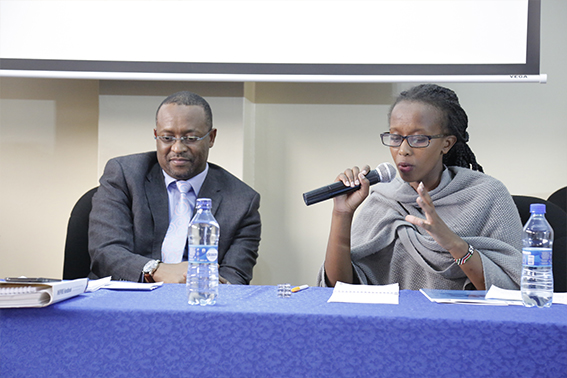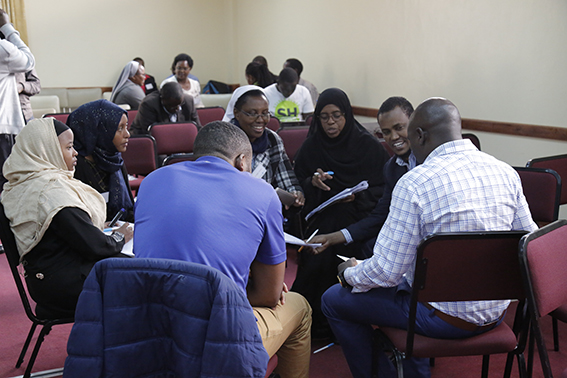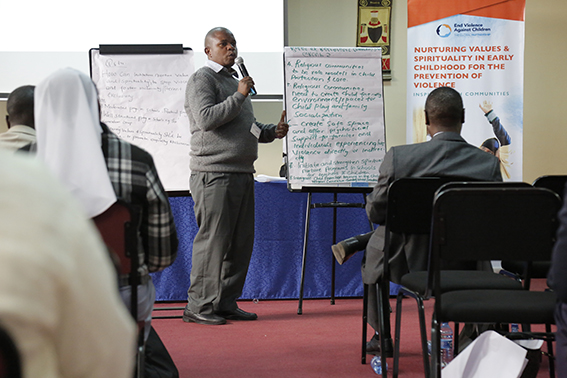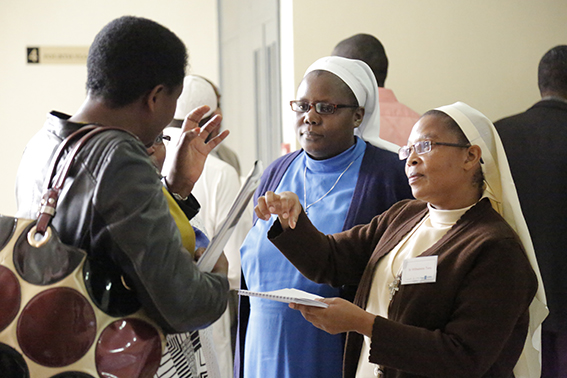With a strong call to action to work together for a future of dignity, prosperity and peace for children, Dr. Daniel Muvengi, Regional Director of World Vision Kenya, opened the National Roundtable Discussion on Nurturing Values and Spirituality in Early Childhood for the Prevention of Violence that was held on 28 and 29 May, 2019, in Nairobi, Kenya.
The two-day event brought together more than 80 participants, including religious leaders, representatives from civil society organizations, government and multilateral agencies, and academia, presenting an excellent opportunity to discuss the magnitude and impact of violence in early childhood, and to identify actions to transform social and cultural norms that condone violence and that support parents and caregivers.
This was the fourth of a series of roundtable discussions that are being organized in Brazil, India, Kenya, Lebanon, and Sri Lanka by the International Consortium on Nurturing Values and Spirituality in Early Childhood for the Prevention of Violence, with the purpose of mobilizing religious communities, and raising awareness about INSPIRE – Seven Strategies to End Violence Against Children.

Faith leaders agreed that there is no religion that endorses violence against children and that religion should be taught without fear and violence. On this topic, Sheikh Ibrahim Lethome, Chair of the BRAVE Reference Committee, and Legal Adviser to the Supreme Court of Kenya, said: “Religious beliefs are often misinterpreted; and while we cannot change the scripture, we have an obligation to a diligent and careful interpretation that leads to positive understanding and applications of religious teachings”.
Addressing the pressing issue of corporal punishment in the country, which remains socially accepted both in the home and school environment in spite of being abolished from schools in 2001, religious representatives and experts encouraged the use of alternative ways that affirm the dignity of the child and appeal to their feelings and hearts. Violence begets violence and should not be used with children, they emphasized.
After different presentations and panel discussions, participants were asked to engage in small group dialogues, where they reflected on issues related to the social and cultural norms that condone violence in early childhood. They listed poverty, lack of education, lack of proper coping skills, Bad cultural practices and Weak institutional policies, as some of the root causes of violence in Kenya. They also discussed how civil society and faith-based organizations, as well as schools, can work together with religious leaders and communities in supporting families, parents, caregivers, and teachers.

The meeting concluded with the commitment from the organizers and participants to bring similar dialogues to local communities, training of religious leaders on the science of early childhood, sharing good practices and joining forces to advocate for better data on violence in early childhood and better investment to reach the most vulnerable.
This meeting was organized by members of the Consortium, and partners in Kenya, including Aga Khan Foundation, Arigatou International, Catholic Relief Services, the Global Partnership to End Violence Against Children, Islamic Relief Kenya, and World Vision Kenya. A country-specific advocacy booklet with scientific evidence on the impact of violence in early childhood, theological reflections, and good practices will be produced as a result of the roundtable and will serve to bring this dialogue to the communities and INSPIRE joint action.
We thank our partners and members of the consortium, as well as our collaborators in Kenya, for making this meeting possible. We hope these discussions help create momentum towards concrete actions, to promote a healthy and positive environment for the development of children.

